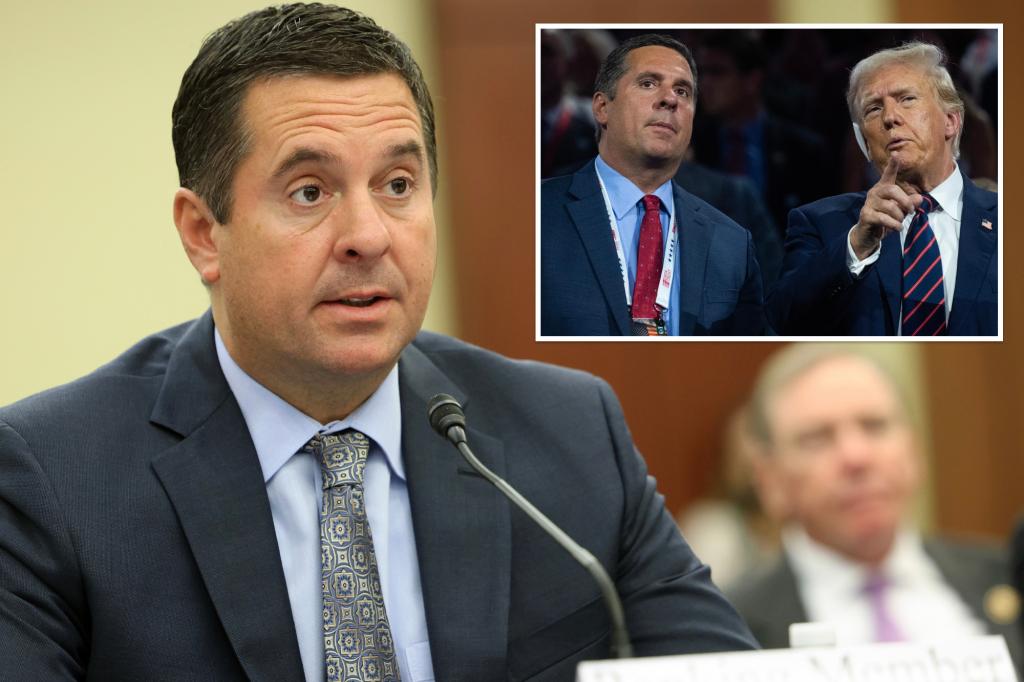The announcement of Devin Nunes’ appointment as chair of the President’s Intelligence Advisory Board (PIAB) marks a significant development in the Trump administration’s approach to intelligence oversight. Nunes, a staunch Trump ally and former Congressman, brings to the role a history of challenging established intelligence narratives, particularly those surrounding the Russia investigation and the Mueller probe. His selection signals a potential shift in the PIAB’s focus, possibly towards scrutinizing the intelligence community’s activities with a more critical lens, particularly regarding perceived biases or overreach. While the PIAB’s traditional role has been to offer independent advice on intelligence effectiveness, Nunes’ appointment suggests a greater emphasis on evaluating the “propriety” of intelligence operations, raising questions about the potential for increased politicization of intelligence matters. This appointment also underscores the ongoing influence of Trump’s inner circle within his second administration.
Nunes’ background as a long-serving Congressman and former chair of the House Intelligence Committee provides him with a familiarity with the complexities of the intelligence community. However, his tenure was marked by controversy, particularly his handling of the Russia investigation. Critics argue that his fervent defense of Trump and his attacks on the FBI and Robert Mueller undermined the integrity of the investigation and contributed to the polarization of national security issues. Supporters, on the other hand, view him as a champion of transparency who exposed what they believe to be politically motivated attacks on the Trump administration. This divided legacy sets the stage for a potentially contentious tenure as PIAB chair, with his actions likely subject to intense scrutiny from both sides of the political spectrum. The decision to retain Nunes as CEO of Trump Media & Technology Group while simultaneously chairing the PIAB further adds complexity to his role, raising questions about potential conflicts of interest and the blurring of lines between political, business, and intelligence domains.
The simultaneous announcements of Bill White and Troy Edgar to ambassadorships and deputy secretary positions respectively further shape the emerging landscape of the Trump administration. White, a businessman with experience in both the private and non-profit sectors, will serve as the US ambassador to Belgium. This appointment reflects a trend of selecting individuals with strong business acumen for diplomatic roles, potentially signaling a prioritization of economic diplomacy and trade relations. Edgar’s nomination as deputy secretary of the Department of Homeland Security (DHS) brings his private sector experience in technology and his previous government service within DHS back into the fold. This appointment suggests a focus on leveraging technological expertise to address homeland security challenges, potentially emphasizing cybersecurity, border security, and counterterrorism efforts. These appointments, along with Nunes’ selection, offer insights into the Trump administration’s priorities and the individuals entrusted to carry them out.
The PIAB, traditionally composed of individuals with diverse backgrounds and expertise in national security and intelligence, plays a critical role in advising the president on intelligence matters. The board’s mandate includes assessing the effectiveness of the intelligence community in collecting, analyzing, and disseminating intelligence, as well as ensuring the community’s activities are consistent with national security priorities and legal and ethical standards. The PIAB’s independence is crucial to its ability to provide objective and unbiased advice to the president. Nunes’ appointment, given his close ties to Trump and his history of partisan advocacy, raises concerns about the potential for this independence to be compromised. The composition of the rest of the PIAB will be closely watched to gauge the overall balance and potential influence of Nunes’ leadership.
The appointment of Devin Nunes to chair the PIAB has ignited a debate about the proper role of the board and the qualifications of its members. Critics argue that Nunes’ partisan history and unwavering loyalty to Trump make him unsuitable for a position that demands impartiality and objectivity. They fear that his leadership could politicize the PIAB and undermine its credibility as an independent advisory body. Concerns have also been raised about potential conflicts of interest arising from his simultaneous role as CEO of Trump Media & Technology Group. Supporters, however, contend that Nunes’ experience in intelligence matters and his commitment to exposing what he sees as wrongdoing within the intelligence community make him a valuable asset to the PIAB. They believe that his perspective will challenge conventional wisdom and contribute to a more robust oversight of the intelligence community. This debate reflects the broader polarization surrounding national security issues and the challenges of ensuring the independence and integrity of intelligence oversight.
Looking ahead, the PIAB under Nunes’ leadership will likely face intense scrutiny. His actions and recommendations will be closely examined by Congress, the media, and the public. The board’s ability to maintain its credibility and fulfill its mandate of providing objective advice to the president will be a key challenge. The composition of the board and the selection of its future members will be critical in determining the direction and impact of the PIAB under Nunes’ leadership. The broader implications of this appointment extend beyond the PIAB itself, reflecting the ongoing debate about the role of politics in intelligence oversight and the balance between executive power and independent accountability. The effectiveness and legacy of the PIAB under Nunes’ leadership will ultimately depend on his ability to navigate these complex challenges and maintain the integrity of the board’s mission.

